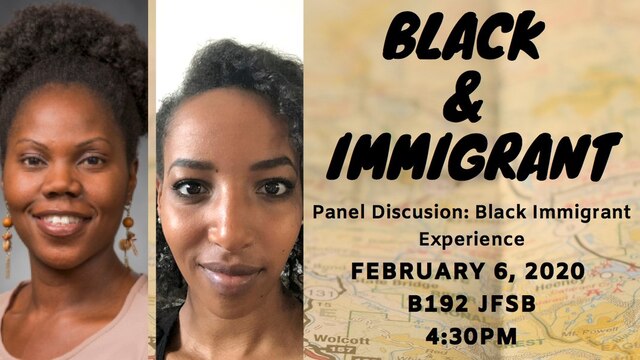
Officials at Brigham Young University are apologizing after a Black History Month panel was disrupted by racist questions that were submitted anonymously.
The BYU Kennedy Center for International Studies hosted a panel featuring five Black women discussing race and immigration on Thursday. The audience was asked to submit questions online anonymously for the women to answer. The panelists said they noticed something was wrong when members of the audience started laughing at the questions on a screen that wasn’t viewable by the women, according to The Washington Post.
Students and a few of the organizers posted some of the questions that were submitted: “What is the percentage of African-Americans on food stamps?” “Why do African-Americans hate the police?” “Why don’t we have any white people on stage?“ “How is it to be black? I don’t see color,” and “Why do we act like all black people don’t get treated well? There are also white, Mexican, Chinese and other races not getting treated well.”
A student at the event, Grace Soelberg, said people could submit their questions through an app called Slido. She said she was upset that she has to stay on campus “with people who generally believe I am inferior to them because of the color of my skin.”
— Grace Soelberg (@SoelbergGrace) February 7, 2020
Tendela Tellas, a sophomore at the university and a speaker at the event, said she was disturbed by the submitted questions.
“The fact that the people made the effort to come to the panel and attack us is disgusting and honestly a waste of time. I honestly don’t know how BYU can stop this again, but there needs to be a solution,” Tellas told The Salt Lake Tribune.
Leslie Hadfield, an associate professor in the Department of History and Africana Studies at BYU, said in an email that the questions were intended “to demean Black people.” She added that the school had potentially identified two students who may have been behind the questions.
“We apologize to the students in charge and other students negatively affected by this. I commend the moderator, student Déborah Aléxis, for her composure and maturity as she focused on the most genuine and productive questions. The negative questions and comments did not derail the event which had some wonderful outcomes, but adds evidence to the existence of white racism on campus, some of which is overtly hostile,” Hadfield wrote in an email.
Another student, Matthew Blaine Hyde, wrote an impassioned Facebook post condemning what happened at the event and asking his fellow students to be better.
“If you’ve ever asked yourself ‘Why don’t we have a white history month?’ Please ask yourself what exactly we’d study that month—probably the exact same history that’s already taught K-12. We’re so used to always being represented that the second we aren’t, it feels VERY uncomfortable, so uncomfortable that somebody actually asked why there weren’t any white people on the stage at an event called ‘Black and Immigrant.’ This sounds like someone who’s seen stages full of white folks their whole life and got really uncomfortable the first time they saw a stage with only people they haven’t yet been taught to see as equals or teachers,” he wrote, adding that the event was “hurtful to me, so I can’t imagine how it made the black folks in the room feel.”
BYU has tried to address the issue by releasing multiple statements from the school president and videos of Black BYU students speaking about their experience.
(snip)
In another tweet, the school, which is controlled by the Church of Jesus Christ of Latter-day Saints, said “White supremacist attitudes are morally wrong and sinful, and we condemn them. Church members who promote or pursue a ‘white culture’ or white supremacy agenda are not in harmony with the teachings of the Church.”
(snip)
There have been dozens of racist incidents at the school and there is a long history of racism within the church. Of the school’s 33,000 students, just 400 are Black and there are few Black professors. Tellas said she had been called n****r and asked offensive questions about her hair.
*see full story by Blavity News